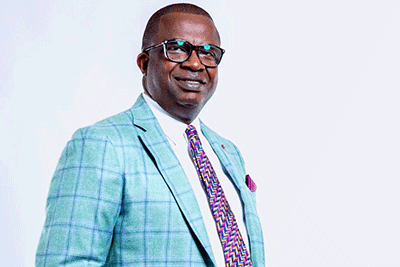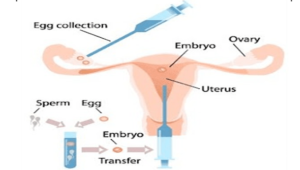Fertility Talk With Dr Abayomi Ajayi: Embryo Donation
Fertility Talk With Dr Abayomi Ajayi: Embryo Donation

This is a situation in which the couples seeking IVF treatment opt to receive the donation of fertilized egg (eggs and sperm) from another couple. This may be indicated when partners, (men and women) have neither eggs nor sperm. The woman for instance may have reached early menopause, and the man may be azoospermic. Couples who have a high risk of passing genetics disorders to their offspring. Sometimes the couple may have poor quality eggs and sperm which has manifested as recurrent IVF failures.
Couples, who decide to use donors, will need counseling prior to treatment, so that all ethnical or moral issues may be properly addressed. Both donors and recipients also need to give a recent Consent. For many couples donor IUI or Donor IVF may just be the solution to their problem of infertility or failed treatments. For this reasons, it may be worth considering as a means of achieving your much desired goal.
There is no doubt that the success of ART is directly dependent on the quality of eggs used and this is directly related to the age of the female partner in couples seeking ART treatment. The lower success rate achieved in older women is mainly due to lower quality of eggs encountered in this group of women. In order to make IVF more beneficial to the older couple and at the same time increase accessibility to couple with financial constraints, the concept of Egg SHARING was introduced in Europe and America. Now fully acceptable in many countries worldwide, EGG SHARING SCHEME has evolved to meet both the reproductive and financial needs of an increasingly enlightened population. In essence, couples facing of eggs. The development and maturation of the egg will then be monitored by serial ultrasound scan. When all the eggs are ripe, all the eggs collected from her ovaries will be shared equally between herself and the recipient.

The inherent disadvantage in this is that there will logically be a lower predicted outcome of overall success, if for example she produces only a few eggs or only a few eggs fertilize. Both women may end up with fewer numbers of fertilized eggs each. Those with the challenge of infertility who cannot afford the cost of IVF treatment can have their treatment paid for by an “egg recipients” couples, egg sharing therefore involve the voluntary sharing of eggs between two couples who remain anonymous throughout the procedure. At Nordica fertility Centre, Lagos, we also have also modified egg sharing scheme which takes care of the inherent problems in the classical egg sharing scheme. This will be introduced in this article. Usually, the egg recipient is an older woman who has no eggs of her own (i.e. premenopausal or menopausal) or has poor quality eggs, which has resulted in repeated miscarriages or previous cancelled/ failed IVF cycles. Couples sharing their eggs (donor couple) should be fit, healthy and under the age of 35. Prospective couples who wish to take advantage of the Egg Sharing Scheme will need to undergo an initial screening for hormonal imbalances, genetic and infectious diseases. The donor couples only pay for the cost of this screening and practically have their treatment free! ‘The donor couple’ will also have a detailed assessment of past medical and gynecological pelvic examination along with vaginal ultrasound scan for the woman. The presence of ovarian cysts, polycystic ovarian diseases, malpostioned ovaries, endometriosis or fibroids, may disqualify prospective ‘donor couples’. Egg recipient (women) may be in their early or late 40’s, in some instance, women in the 50’s may benefit from the Egg Sharing SCHEME. This means that it is not necessary for the egg recipients to be having regular period. She may be having regular or irregular periods. Her periods may even cease. She may already be on hormone replacement therapy.





